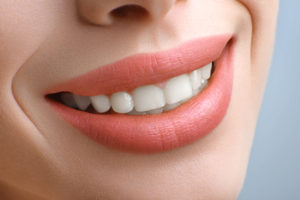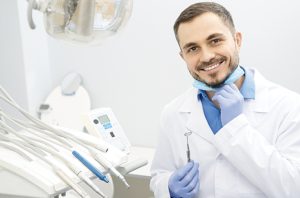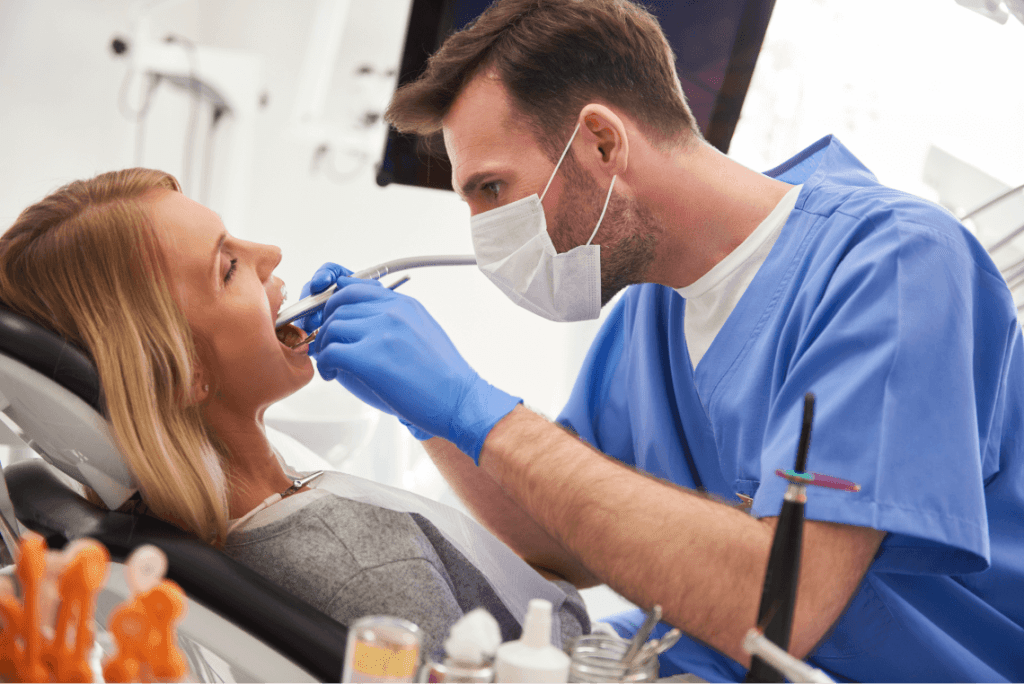Periodontics is a form of dental health treatment. Understanding how it works is critical to a healthy mouth.
Periodontics is the study of the support structures of teeth, including, but not limited to diseases, physical issues and treatments for both. Covered under periodontics are the periodontium, gingiva (gums,) alveolar bone, cementum and periodontal ligaments.
It is considered a specialty within dentistry and periodontists attend 3 additional years of school beyond dentistry as well as specialized training. The training ensures that periodontists are up to date in the latest in treatment, equipment and techniques for addressing periodontal issues.
Practically, periodontics deals with inflammatory disease and conditions that destroy gums and the support structure of teeth. These can be caused by disease, trauma or deformities that affect the structure, alignment, growth and maintenance of teeth. The types of issues addressed under the umbrella of periodontics include:
- Mild Gingivitis
- Severe Periodontitis
- Scaling and Root Planing (cleaning infected roots)
- Debridement (removal of damaged tissues)
- Regeneration (reversing the loss of bone or tissue)
- Surgical Procedures (for severe cases of gum disease, to address deformities or trauma)
- Dental Implant placement, maintenance and repair.
Role of Periodontics
From the moment you are born, your mouth is constant assault. This mostly comes in the form of germs and bacteria that cause inflammatory disease and destroy gum and support structures of your teeth.
Left untreated, a mild case of oral disease can escalate into a severe case and affect tooth strength, placement and fit. In the most severe cases, the disease can eat away at the jaw bones and lead to loose or lost teeth as well as other bone diseases.
While some people would undoubtedly get lucky, most people would have severe teeth, gum and jaw issues if they did not take care of their oral health. A periodontist is part of that entire oral health process.
Three Purposes
Periodontics serves three purposes in combating that cycle.
Monitoring: A periodontist in coordination with a regular dentist will monitor a patient’s oral health to treat problems the dentist diagnosed or suspects and to ensure treatment is working. They will also help the patient track their health issues and stay on top of any changes in their condition.
Repair: In some cases, the disease is too far along to avoid and when that happens, various treatments must be tried in order to get the disease under control, stop any damage it is doing to the gums, ligaments, teeth or bone and repair what has been damaged.
The ultimate goal is to eradicate the disease, but fixing what has been broken is a key part of that process.
Maintenance: Once an oral issue is under control and the damage has been repaired, performing routine checks and maintenance is vital to ensuring dental health. Routine checkups in addition to annual cleanings is generally recommended as the patient and periodontist work to change behaviors that led to the issue, continue to repair any damage and avoid any problems in the future.
Treatments and Avoidance
There are many options for treating oral disease via a periodontist. Unless the damage already done is so severe, more drastic approaches are needed from the start, a treatment regimen will start out simple and non-intrusive and grow in both areas as needed. Treatment can also include performing cosmetic periodontal procedures, including dental implants.
To get to that point, however, severe damage must have occurred, at least in relationship to the affected teeth, gums or support structure. A periodontist would not recommend a mouthful of dental implants, for example, if only a couple of teeth and support structures were affected.
What is recommended is determined solely by the extent of the damage already done. If caught early enough, antibiotics can kill damaging oral bacteria and stop oral disease from spreading. If the oral issues are addressed late in the game, more drastic approaches and procedures will be prescribed; these generally are much more intrusive and the recovery longer and more complicated.
Regular Oral Maintenance is Key
This is why teeth cleaning is so important. Not only does it help avoid oral disease, it also helps dentists identify the presence of disease or the environment that lets disease thrive.
The dentist can then recommend basic treatment and avoidance regimens or if the disease is far enough along, they can recommend a periodontist who can take over the treatment. It is important to note that a periodontist does not replace a regular dentist, but works in tandem with them to identify and treat disease and disease risk factors.
















